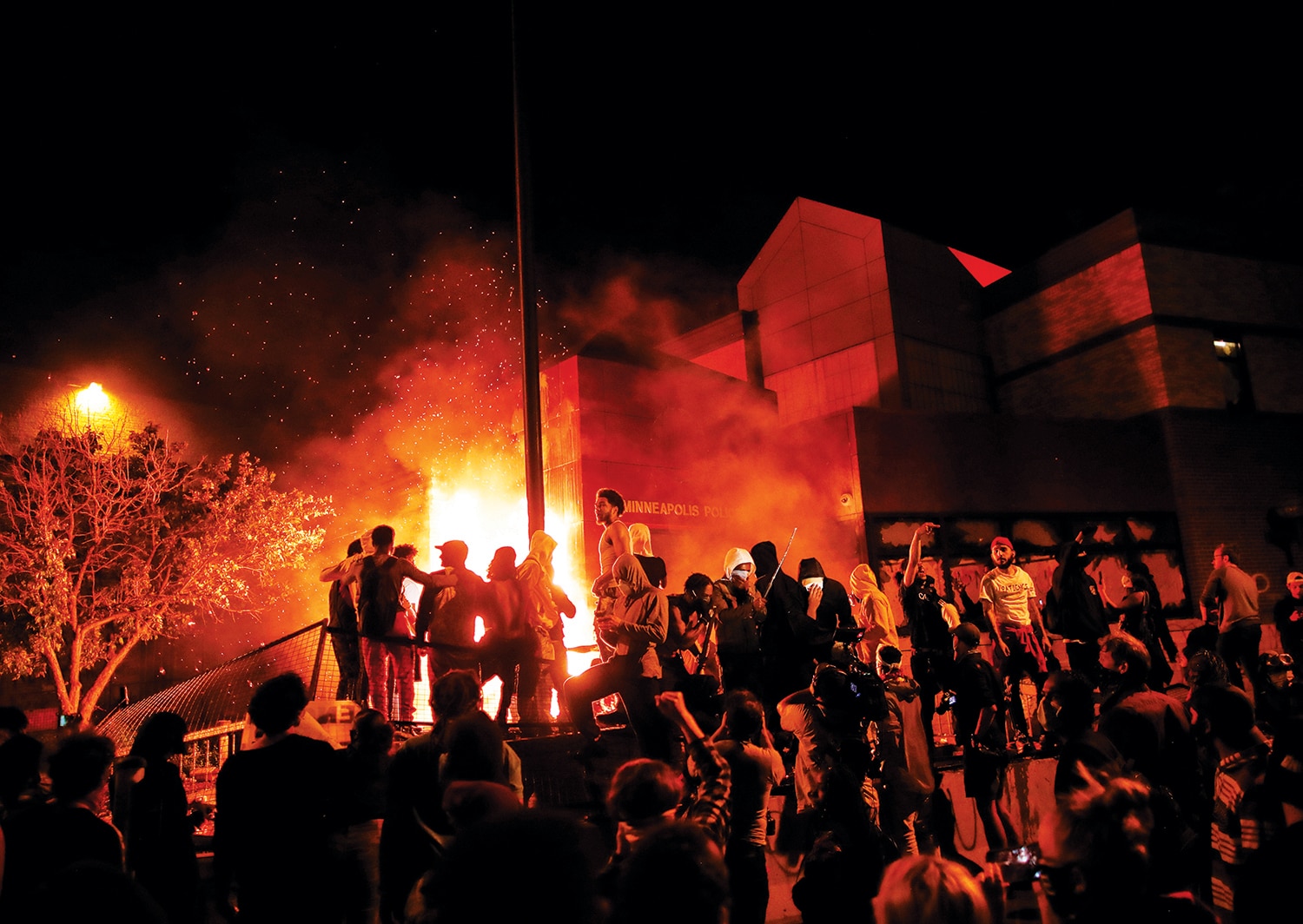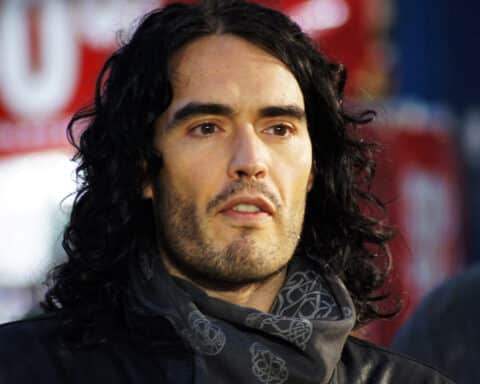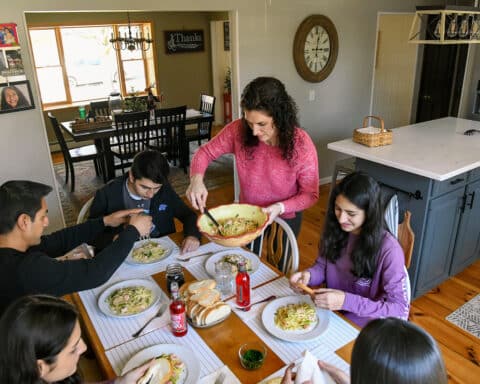There was video available, but the still photos were more than enough to see.
On an April morning in Queens, New York, a 68-year-old woman was ascending the steps outside an Orthodox church when a 16-year-old male, who had been following her, swiftly moved ahead. Overtaking the woman, he bounded to the top of the stairs and then shoved her to the concrete pavement below.
It wasn’t difficult to imagine the awful thud and crack of a skull fracturing.
As the woman lay injured and unmoving, the boy — yes, he is still only a boy — rifled through her coat pockets, grabbed her handbag and her keys. He then allegedly made off with her car (which was older than he), leaving his victim in a pool of blood.
Whether she was dead or alive seemed of no consequence to him.
Initial reports indicated that the suspect, Jayvaun Prince, already had a rap sheet with multiple arrests for robbery and misdemeanor assaults, and that he was suspected in the harassment and robbery of another elderly woman the week previous.
This is just one moment of horror in a city whose stunned population is — like those in other American cities — blinking wide-eyed at the swift acceleration of the social breakdown happening all around.
We look on in horror at these scenes, and the oddly disinterested policies from our elected leaders which help them along, and we know instinctively that something must be done. It’s what we say to ourselves or to each other: “Something needs to be done! Someone needs to do something!”
And then we turn the page, or our minds blip as our fingers scroll down to whatever just got posted to social media.
We rarely consider ourselves to be the “someone” who might possibly have a hand in the “something” that needs doing. In truth, we aren’t thinking about it long enough for such a notion to bubble up to the surface. As a people, we have developed matchstick attention spans that flash-flame and then die out in seconds.
Very little is really getting through to us, anymore. War, cultural chaos, stupid movies, political corruption, religious scandals gone unaddressed — nothing registers beyond the blink, beyond the blip of screen motion.
Meanwhile the bill for our inattention grows larger, its delivery nearer, every day.
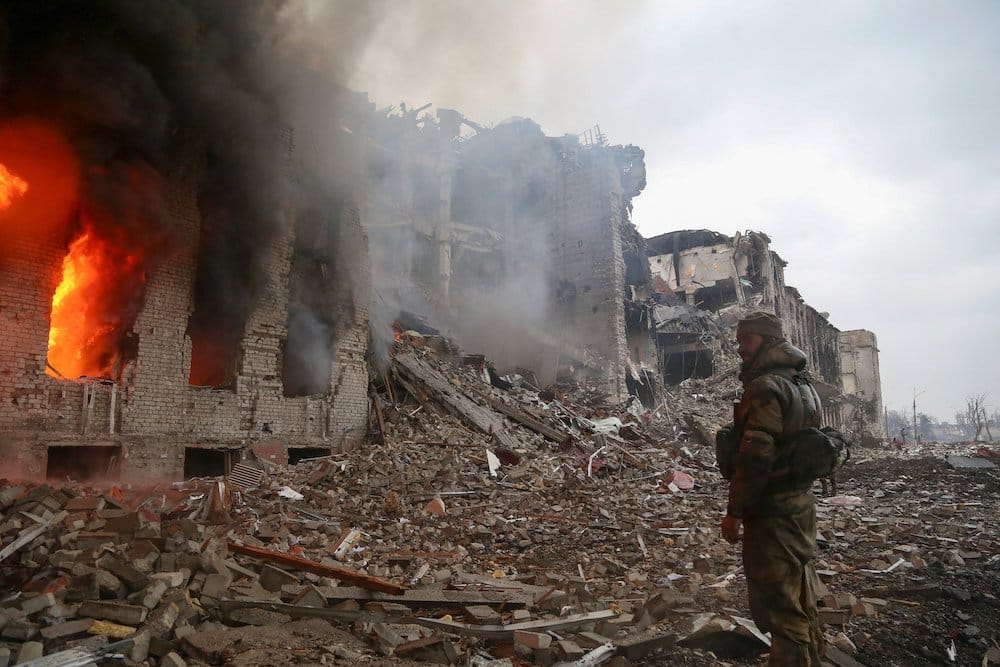
Reclaiming shame and guilt
There may yet be a way to turn things around — a means of reorienting the troubling trajectory of our society — but it will require things that we, as a culture, increasingly do not seem to possess: focused attention, compromise, creative thinking on accountability and, most challengingly, a willingness to reclaim and reappreciate what we long ago tossed aside as unnecessary: feelings of shame, or even — dare I say it — guilt, which are gateways to considered and authentic remorse.
A recent article in The Wrap revealed that those exact two emotions, shame and guilt, were meant to be characters in the upcoming 2024 Pixar film “Inside Out 2,” which assigns personas to the emotions moving through a 13-year-old girl. Shame and Guilt, however, were edited out of the final cut. “It was not fun to watch,” the director said. “It was too heavy.”
Those emotions have been edited out of society, too, because they really are heavy. In the 21st century, no one wants to look at anything that makes us feel bad about ourselves, especially if the thing we’re looking at is our own unwillingness to be humbled and the condition of our needy and deficient interior lives.
Encountering the article on social platform X, Catholic author and speaker Leah Libresco Sargeant observed that our reluctance to entertain shame and guilt “really undersells shame as a spur to repentance and reconciliation. It’s a relief as a parent to see kids learn to sorrow over hurting others and want to make things right vs hurtling along oblivious.”
Perfectly right. If our destination is human wholeness and maturity then we, and our kids, need to be able to travel the “heavy” and uncomfortable paths needed to get there.
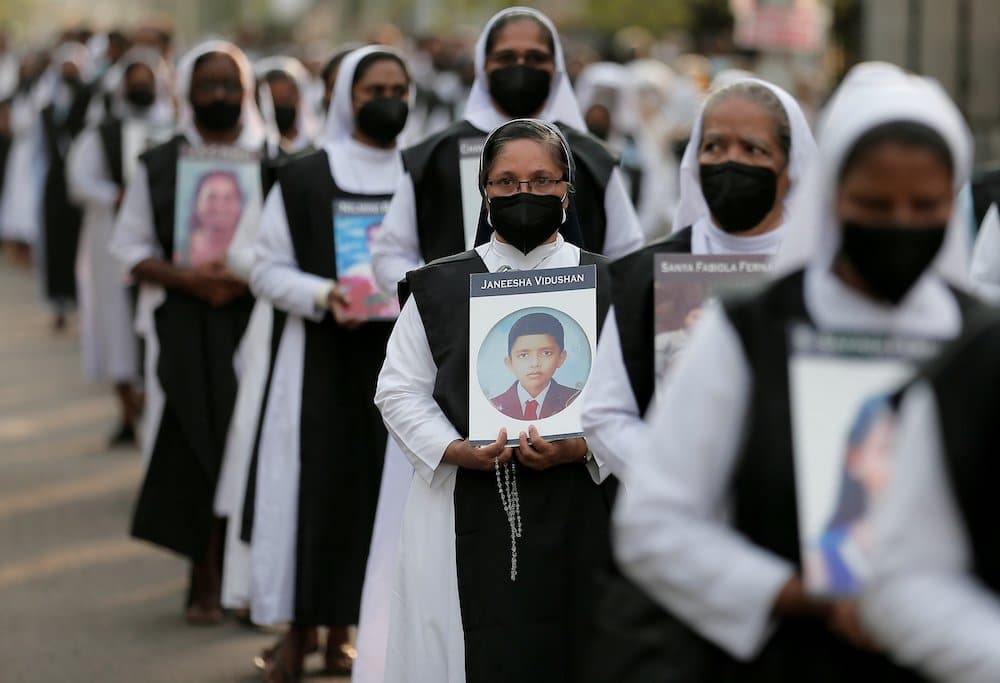
Defining sin
For many, a Catholic writer bringing up shame cues an eye roll or a sigh and a wisecrack about “Catholic guilt,” but that’s just brain sloth. “Catholic guilt” is a cheap, overused punchline that has harmfully mischaracterized and socially diminished the value of a formed conscience; it has little to say to anyone younger than my own boomer generation. It’s unlikely that people coming through religious education or Catholic schools in the past 30 or so years even have a clue as to what “Catholic guilt” means. The charge has devolved into an intellectually lazy broadside used against something that is quite real, but which we’re no longer supposed to talk about — the actuality of sin. The fact of sin and our own accountability for its effects.
Some will react to these words — shame, guilt, sin, accountability — with an instinctive and visceral dislike, arguing that while shame and guilt are nuisances to the conscience, sin is too subjective, and too bound up with Christian over-scrupulosity, to be reliably defined and that accountability can only be outlined by authorities.
| The Education of the Conscience |
|---|
|
“The education of the conscience is a lifelong task. From the earliest years, it awakens the child to the knowledge and practice of the interior law recognized by conscience. Prudent education teaches virtue; it prevents or cures fear, selfishness and pride, resentment arising from guilt, and feelings of complacency, born of human weakness and faults. The education of the conscience guarantees freedom and engenders peace of heart.” — Catechism of the Catholic Church, No. 1784 |
Interestingly, the brilliant writer and self-proclaimed atheist Terry Pratchett gave us an excellent starting place for identifying sin in his wildly creative novel “Carpe Jugulum” wherein the elderly, pipe-smoking Granny Weatherwax instructs the young Quite Reverend Mightily Oats on the matter.
“… sin, young man, is when you treat people as things. Including yourself. That’s what sin is.”
“It’s a lot more complicated than that –“
“No. It ain’t. When people say things are a lot more complicated than that, they means they’re getting worried that they won’t like the truth. People as things, that’s where it starts.”
“Oh, I’m sure there are worse crimes –“
“But they starts with thinking about people as things. …”
Granny has indisputably nailed the fundamental fact of sin and the place where almost all of our missed marks originate. As Pratchett himself demonstrated, one needn’t be religious, or indeed any sort of believer at all, to understand and embrace this moral cornerstone: People are not things, and when we forget that, we fall into sometimes harrowing sin.
Responding to violence
If, whether we are religious or deeply secular, we can agree that it is morally wrong to treat people as things, can that help us respond to the growing, unfocused violence and senseless human degradation all around us?
Well, this is where focused attention and compromise come into play — attention that acknowledges our shared concerns about social chaos and how to address it, coupled with enough cooperation for persons to willingly withhold their knee-jerk instincts to take offense over clumsy rhetoric in order to serve the larger project. That might mean conceding together that — while tons of ink have been spilled on the immorality of either professing a “wrong” opinion or disrespecting a “correct” one — not enough is being said about how we shouldn’t rob each other; we shouldn’t toss people to the ground; we shouldn’t mock or bully anyone whose burden we haven’t borne; we shouldn’t sell our bodies or other people’s bodies — we shouldn’t commodify people at all, not even by making videos of their mistakes or their tragedies and then uploading them for monetization or even just for “likes.”
These “obvious” things need to be proclaimed without partisanship and then collectively recognized as valid and valuable moral positions. This is how — without professing fealty to a political stand or a particular religion, or any religion at all — society can begin the process of forming responsible social and individual consciences.
As important as that is, forming our consciences will mean not just enumerating all the things we should know better than to do, or all the ways we humans can fail ourselves or others, but also acknowledging that accountability matters, and what that might look like beyond calls for “more police, more jail time.”
| The dignity of the human person |
|---|
|
“The dignity of others is to be respected in all circumstances, not because that dignity is something we have invented or imagined, but because human beings possess an intrinsic worth superior to that of material objects and contingent situations. This requires that they be treated differently. That every human being possesses an inalienable dignity is a truth that corresponds to human nature apart from all cultural change.” — Pope Francis in Fratelli Tutti (“All Brothers”) 2020 |
More police might have meant there was a cop nearby that Orthodox church in Queens. It would not have done anything, though, to prevent the interior impulse, apparently unchallenged, that led Jayvaun Prince to execute his shameful alleged act.
So, what should we do with Jayvaun and his unformed, shame-resistant conscience? Remember, he is only 16 and he’s been arrested five times. Do we throw him in jail, where — if he is not physically and sexually abused — he will only learn how to become better at being worse?
Wouldn’t that be just throwing him away like a thing?
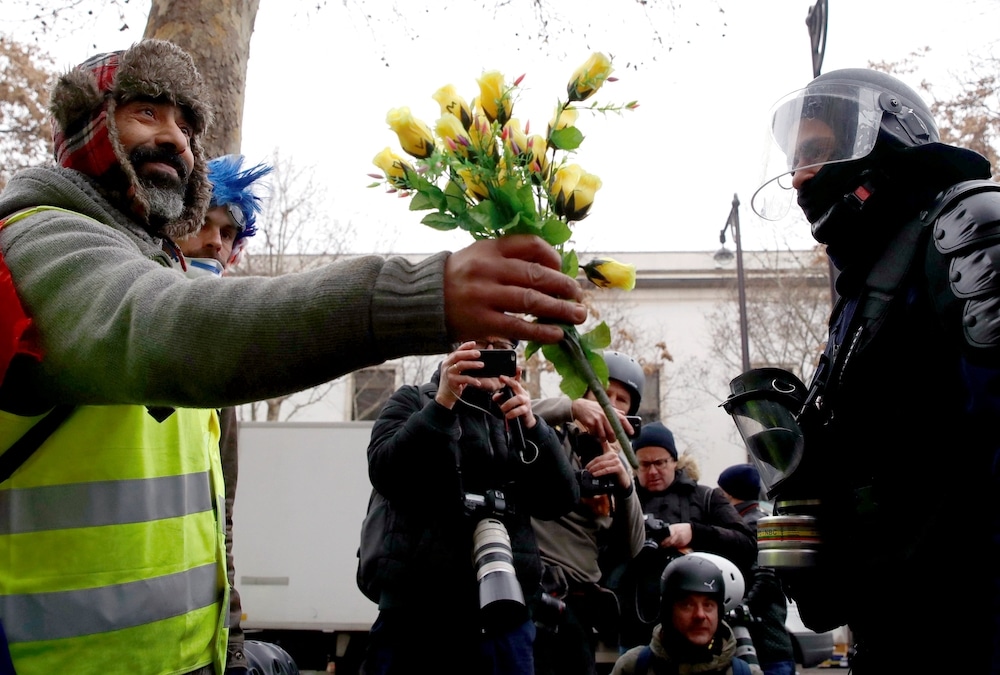
Forming consciences
While in police custody, Jayvaun made an unsuccessful attempt at suicide. What parent among us can look at him and his story and not think, “This kid is in trouble; he needs help.”
Without being a theologian or a healthcare professional, it’s still pretty obvious to me — a mere parent — that this teen needs personal attention and patient guidance toward better mental health and moral wellness. How do we help to form his conscience, though? How do we teach him to hate his crimes, and the nebulous instincts behind them, without losing hope that he can still avoid a future written only in cuffs and bars — that change, especially at his age, is still possible?
Creative accountability comes into play here. Rather than writing off Jayvaun’s future with a prison sentence, perhaps he needs to “serve time” (supervised, of course) at a hospital or rehab center where his victim and others like her are laboring to reclaim their lives and see the full, long-lasting effects of his brief actions. Perhaps he should be enlisted to help feed people who are not yet able to feed themselves due to injuries sustained by violence, or watch them take their first halting, unsteady steps. Perhaps he needs to see the anger of families dealing with such injuries, and the fear and insecurity that victims of senseless violence carry with them for the rest of their lives.
Perhaps he needs to face his own victim and hear that she cannot forgive him for what he has done to her life, or — if there is grace, and grace is a real thing — that she can.
Real conscience formation can start there, with permitting Jayvaun to feel the sense of real shame, real remorse that comes with witnessing the results of our selfishness, our reckless disregard for the humanity of another. Real humility can come from participating, even in the smallest ways, in the cleaning up of our own messes.
And humility and remorse can become stepping stones to changing for the better. Exposure to the suffering of others could even — taking the idea to its height — inspire a troubled young man to pursue a life in service to such persons and the education he would need to do it.
Seeking a solution
I’m completely aware that this sounds like a pipe dream and that there would be a million details to creating a program such as this and its offshoots. But please don’t dismiss these thoughts as idealistic dreaming, especially if you’re not willing to think outside the box yourself. Instead, why not imagine such a program and try to spot all of its promise and challenges?
Yes, it would probably mean in-house (or halfway-house) arrest and ankle bracelets and someone from law enforcement or social services escorting him to and from the medical centers. It would mean protecting Jayvaun from the wrath of victims and their families. It would mean mental health professionals and possibly parental sorts of volunteers checking in with him and asking him how he felt about these things, and really listening to his answers.
It would be breathtakingly difficult. It would be incredibly challenging. It would be controversial — oh, yes, controversial — but it might be the sort of socially-acquired, cooperative parenting that this teenager (and seemingly generations) really needs in order to build a conscience and learn accountability. Hopefully, having faced the human wreckage wrought by thoughtless and violent past behavior, Jayvaun and others like him might gain a sense of what they want their futures to look like.
We’re all concerned about the direction our society is taking. We’re all saying “something must be done,” but we know that what’s currently being done is not working. Cities are falling apart because local and state legislators are writing bail reform (or no-bail reform) into law. District attorneys are loath to prosecute crimes committed without the use of conventional lethal weapons (which excludes stairway shoves to the cement) because the prisons are overcrowded and unable to offer real rehabilitation. And the police are outnumbered. And they know it.
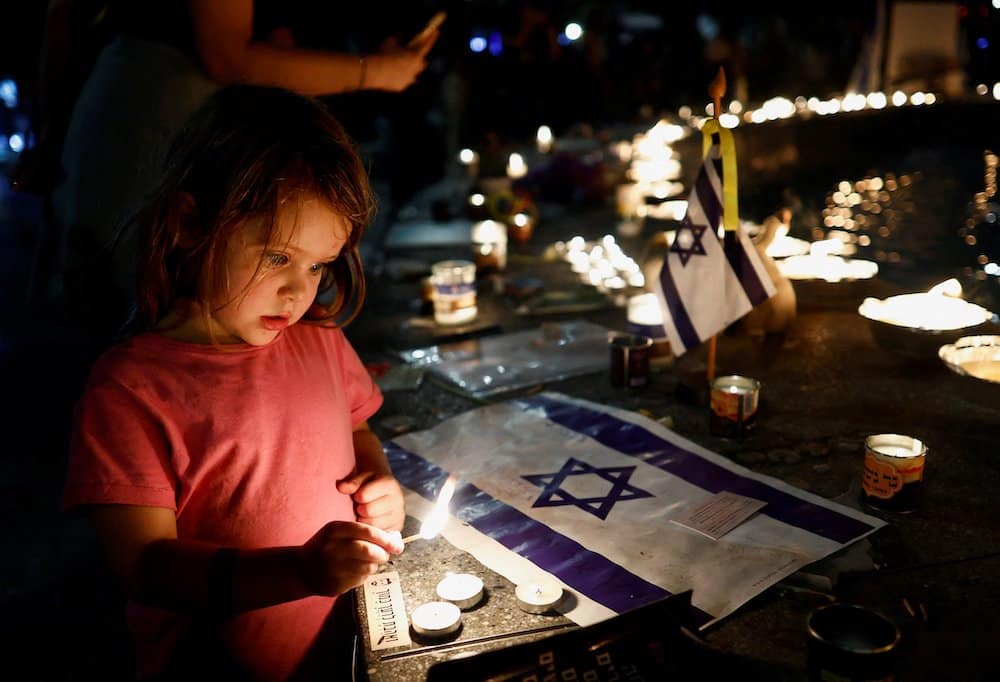
Embracing basic human morality
The old civil solutions are broken; they do not work in a society that teems without a conscience. The leadership is out of ideas. It might be time for the people — divided, but able to agree on the basic human morality identified here — to not only imagine a different way and suggest creative alternatives, but also work together to help an unformed generation learn important truths: that, quite contrary to what they’ve been told for decades, it’s okay and even necessary to feel guilty when they’ve done something really bad — like treating a person like a thing. That it’s good and useful to feel ashamed — to permit that nagging little voice within to say “you shouldn’t have done that; that was wrong,” especially if it means not making that error, not missing the mark in that sinful way, again.
As I write this, our Ivy League universities are roiling with frequent, often ugly demonstrations over the Israel-Hamas war. At Yale, a journalism student covering the story — a young woman who happened to be Jewish — was stabbed in the eye with a Palestinian flag carried by a male activist. The young man ran away after injuring her.
| The Human Conscience |
|---|
|
“Deep within his conscience man discovers a law which he has not laid upon himself but which he must obey. Its voice, ever calling him to love and to do what is good and to avoid evil, sounds in his heart at the right moment. … For man has in his heart a law inscribed by God. … His conscience is man’s most secret core and his sanctuary. There he is alone with God whose voice echoes in his depths.” — Catechism of the Catholic Church, No. 1776, quoting Gaudium et Spes (“Joy and Hope”) 1965 |
She wasn’t seriously wounded, but, whether the contact was intentional or accidental, I couldn’t help thinking that if he’d been found and taken to the emergency center, too — and made to wait in the ER with her, and to watch the examinations and witness her sense of fear for both her vision and her future personal safety — it might have served toward accountability. If the young man could be made to see that he had treated a human being like an unimportant thing, it might create room for those dreaded, edited-out emotions that bring about remorse to grow within him. It might give him the time and space to consider that ideological passions — toward which his reckless activism will likely have little real impact — have, not unusually, led him down a thoughtless path of human devaluation.
It would be good if he could consider all that before, as often happens with ideological movements, he eventually — and all too late — sees his own humanness, his own life devalued as well.
Reclaiming human feelings
In an episode of “Life is Worth Living,” entitled “Liberal or Reactionary,” Bishop Fulton Sheen cautioned that there was a dangerous thing “in believing there are no sick people … only a sick society.” He wasn’t denying that a society can be sick — spiritually, mentally and materially ill, as ours does appear to be. He wanted to stress that individuals and individuality matter, and that if we want to live in a civilized world, then to the individual person attention must be paid. If every hair on our heads has been numbered as Jesus taught (Mt 10:26), then we each, as individuals, are necessary to the right turning of the world.
Individual lives lived in cooperation with each other activate society in the same way that individual atoms, moving together, activate and sustain the human body, and the very places we inhabit.
When we break an individual atom, we become the destroyer of worlds. Breaking an individual person does the same, one human world at a time. If we break enough individuals — and seeing people as things only breaks us, never builds — we unleash hell on earth.
Things are terrible, we can agree on that. What used to work, works no longer: We know that, too. “Someone needs to do something,” we say.
Well, you are someone, and I am someone, and the churches and the pubs and the boardrooms and the town centers are full of someones — many of whom are just looking for an idea, a solution, that they can get behind.
My idea is to reclaim the human feelings that have been tossed into the dustbin and forgotten, and to gift them to an aimless generation. Because consciences must be formed before they can be raised.
I’m open to all thoughts on how that can be accomplished, or even better ideas. Feel free to share them with me, if you like: escalia@osv.com.

